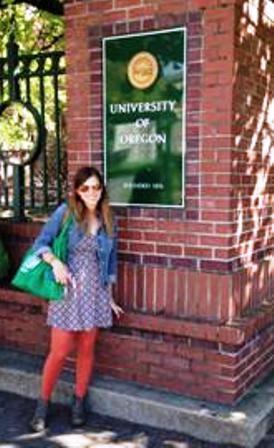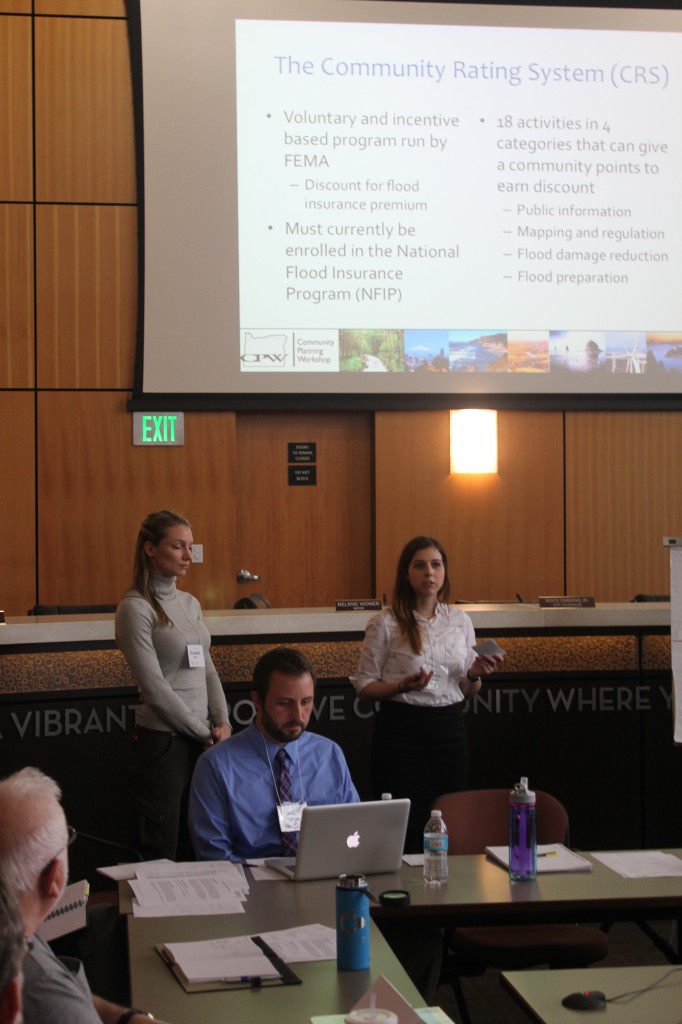My Community Planning Workshop team, Madras Hazards Plan Integration Project, is working in the City of Madras to update a chapter in the city’s comprehensive plan regarding natural hazards. You might think that this project sounds pretty simple; we do some research and we write our chapter of the comprehensive plan. However, that is not the case! As I’ve learned in my first two quarters of graduate school involving the public is a crucial step that can’t be overlooked even in writing a few short pages about natural hazards. While the team has certainly been doing its fair share of research, one of our key objectives is to see what the public wants is included so that the city can effectively address natural hazards in Madras.
To start off with, what is a comprehensive plan, and why am I blogging about it?
Madras has to address 14 of the 19 Oregon statewide planning goals in its comprehensive plan. This long-range document outlines where a community is at currently, where it wants to be in future, and how it will get there. A community should consider what kinds of elements to include in its comprehensive plan. Some typical elements that are usually included are land use, infrastructure, housing, parks, and education. Information from the comprehensive plan will inform more specific policies and citywide ordinances.
It is important for residents to understand their city’s comprehensive plan because everyone is supposed to have a chance to give input as the plan is being developed. After all, you should get a say in how you want your home, neighborhood, and city to change over time. As we identify citywide goals and possible policies, there is no one better to tell us how the city could mitigate natural hazards, such as flooding, than the residents themselves!
To get this input, we are conducting initial interviews with 10-15 stakeholders in Madras. We are hoping that local officials and property owners with land in the floodplain can tell us what they think residents, business owners, and city officials should do to mitigate natural hazards in Madras. This is a very important step because while our team certainly has some great ideas for potential policies, we should not get the final say in regards to how Madras decides to reduce its risk to natural hazards.
From these interviews, our team hopes to get a general feel as to how key stakeholders feel, and then we are going to try and produce more specific questions in the form of an online survey for all residents of the city. Another way we will get residents involved is through a public forum that we are going to hold in April.
By the end of the interviews, surveys, and public forum, our team hopes that we can draft the natural hazards chapter for the comprehensive plan and tailor what we write to what the residents of Madras want, as well as create a natural hazards chapter that will effectively lead to policy to mitigate natural hazards in Madras. As someone not from Madras (or Oregon) I shouldn’t have the final say of the content in the comprehensive plan and am happy that our team is working so hard to find out what is important to residents and how to incorporate this information in the most effective way possible.

Emily Kettell is a first year Community and Regional Planning graduate student. She moved to Eugene from Chicago where she received her Bachelors degree from DePaul University, majoring in French and Public Policy, with a concentration in Environmental Studies.

